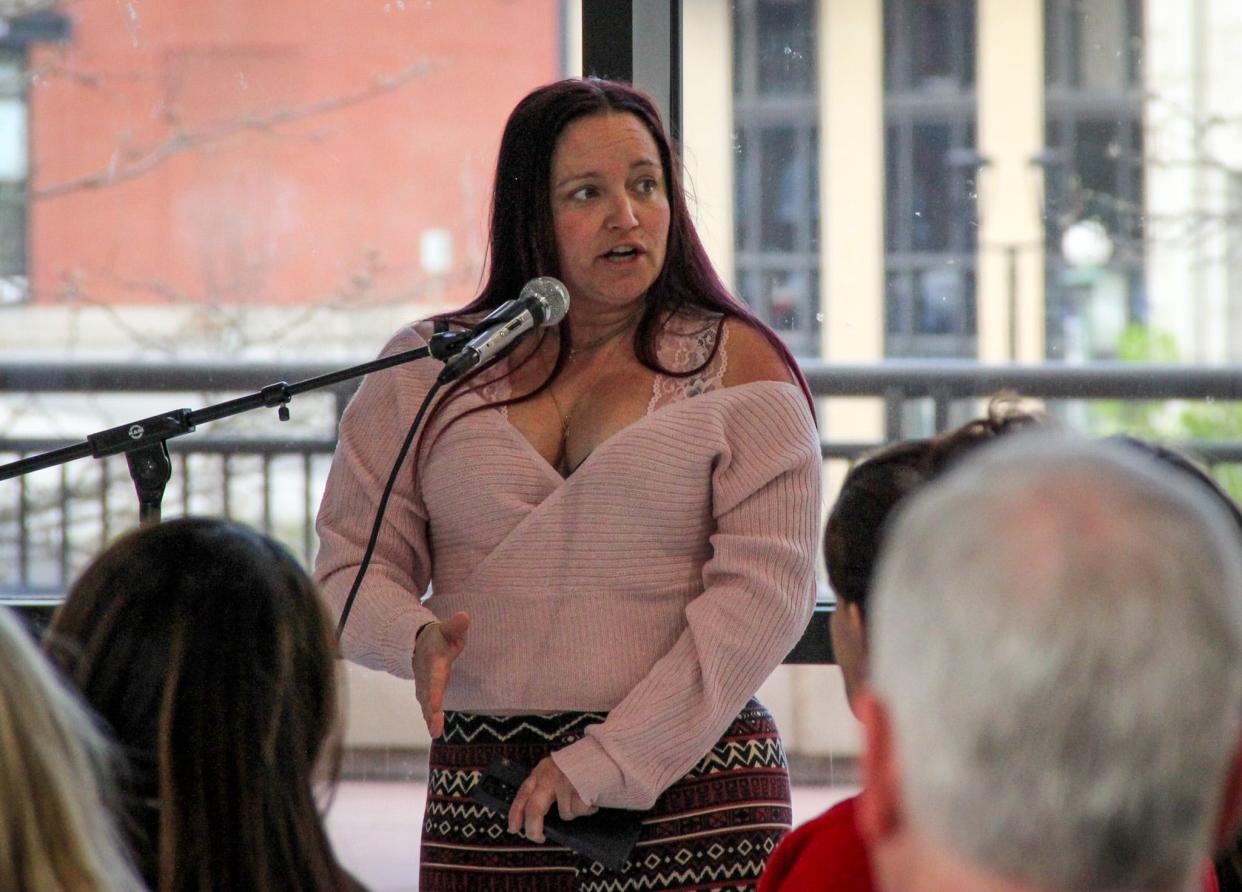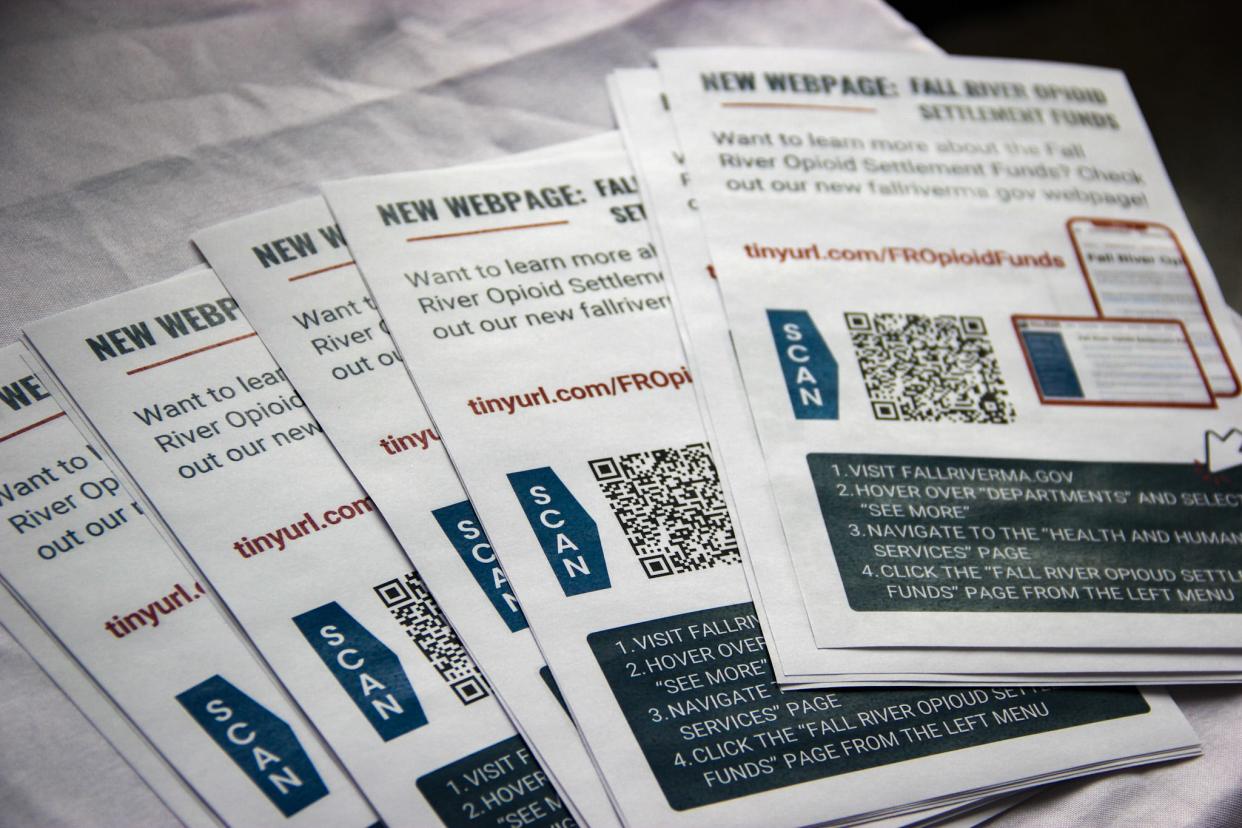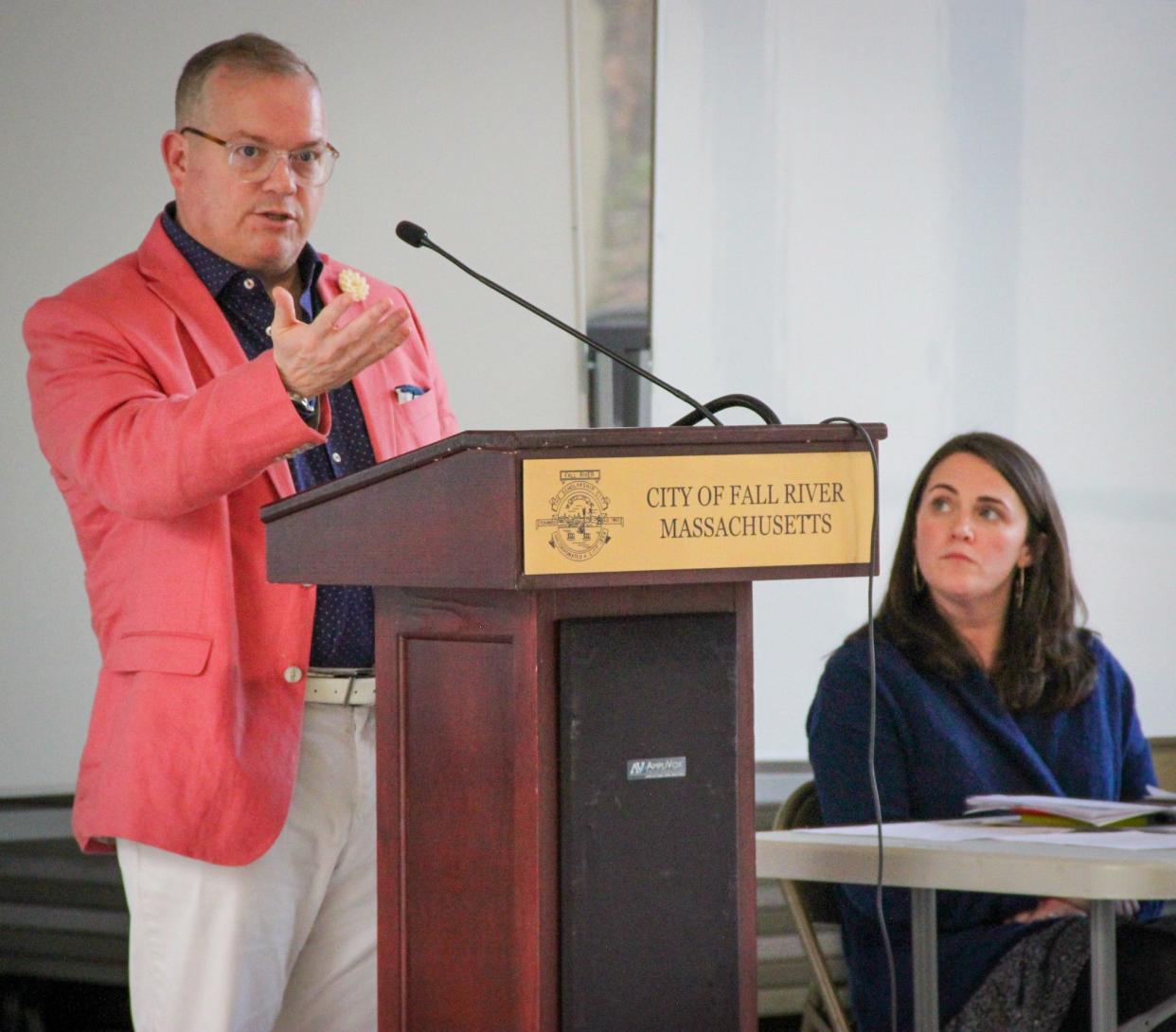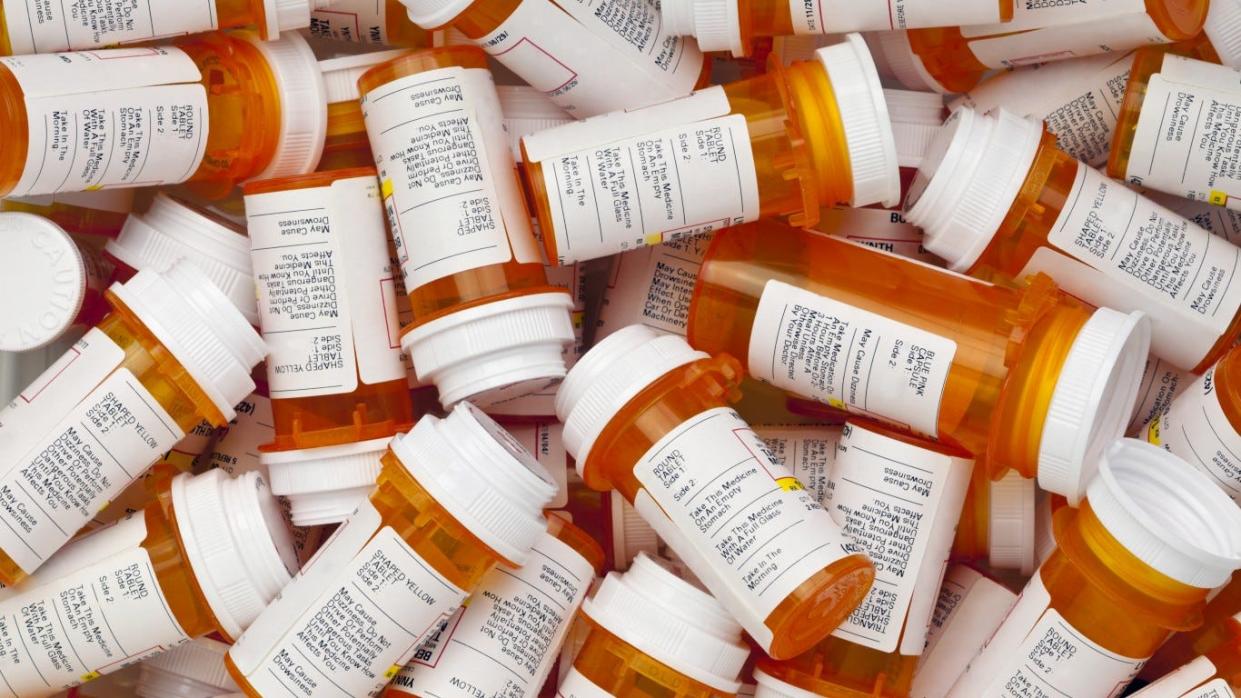'Blood money': How will Fall River spend its $8M share of opioid settlement funds?
FALL RIVER — With the city receiving a windfall of $8 million from settling lawsuits with prescription opioid manufacturers and distributors, Fall River should set aside some money to pay the funeral expenses of people who will die from drug overdoses, said Niki Fontaine, director of Substance Use and Homeless Outreach Services.
To the board tasked with distributing the funds, Fontaine called it “blood money more than a grant.”
It was one of several ideas floated before the Fall River Opioid Settlement Funds Advisory Committee at a public meeting on Wednesday at Government Center. Meanwhile, the city has published a request for proposals so nonprofits that service people with addiction can apply for funds they’ll get this fall.

Between now and 2038, Fall River is due to receive a total of $7,937,813.22 from companies including Johnson & Johnson, CVS, Walgreens and Walmart as part of a national prescription opioid lawsuit settlement. The catch: there are restrictions on how it can be spent.
The meeting was intended to reach out to those in recovery and those who service them, to learn where this money is most needed.
“We really need to identify where the gaps are before we can make an effective change,” said Stephanie Perry, a nurse with Southcoast Hospitals Group and an addiction outreach nurse. "You haven’t had conversations with us. ... Allow us to have a more meaningful discussion with you guys so you can see where we’re at, so we can move forward together.”
Lawsuits settled: Mass. opioid settlement to provide $525 million for treatment, prevention

How Fall River can spend its opioid settlement money
The nearly $8 million is paid in annual installments. It must be spent to create new programs or supplement existing ones that help people addicted to opioids:
To support and promote opioid use disorder treatments
To support recovery treatment
To connect people with addiction or at risk with services
To promote harm-reduction and prevent overdoses
To support criminal justice programs for people with addiction
To support pregnant or parenting women and families
To prevent misuse of opioids and support education for youth
Recovery center: SSTAR wins legal fight over substance abuse facility in Fall River: what happens next

Helping people in recovery from opioid addiction 'find joy'
Tess Curran, Fall River’s director of Health and Human Services, said nearly 500 people so far have taken an online survey sharing ideas for the money.
The meeting inspired further discussion in person, with a handful of people meeting in the Government Center atrium to talk about what people suffering from addiction need to get and stay clean.
Multiple attendees said people need programs that provide occupational training and job skills, so they can build stable lives in recovery.
Denise White, who said she’s been in recovery almost 26 years, said money should be set aside to protect kids from becoming enmeshed in drug culture in the first place.
“We have traffickers going after kids in middle school,” she said. “If we don’t get people at the age of 10, 11, 12 ... we are missing a whole generation of people. It’s never too early to educate.”
Other people said once people are on a journey of sobriety, social factors can make staying sober a challenge.
“One thing we have nothing of is something for people in recovery to do,” Fontaine said.
Fontaine is a longtime advocate for the homeless and is in recovery from heroin addiction. She and others said that, for addicts, the days are long.
“Boredom and isolation are the reason why I relapsed a thousand times," she said. "We can get people into treatment. ... They can go to meetings. But it’s one hour a day.”
Sadye Clark of River to Recovery agreed, stressing the idea that it’s not enough to get people clean — people need something to live for.
“How can we keep them active and excited and find happiness and joy again?” Clark said. “That’s a huge piece that’s missing right now. How do we help them find joy?”
Uphill battle: Fall River making headway against homelessness. But federal COVID-era funding is drying up

Fall River opens up grant proposals with $1.2M on the table
The city published its RFP on May 1, with $1.2 million so far to give registered 501(c)3 nonprofits and government agencies that provide services related to opioid addiction treatment to Fall River residents.
The deadline to apply with proposals is June 16, with an eye to distributing funds by fall.
Several people at Wednesday’s meeting suggested that, with six weeks to the deadline, the application window may be too short.
City Administrator Seth Aitken said the committee would take under advisement the suggestion that it give groups more time to write proposals. But he said the RFP’s criteria are simple enough that local groups can put together great proposals quickly.
"We have this concentration of incredibly effective rehabs, but once the rehab is done, there’s less money and energy around the follow-up," Aitken said. “We want to say to the people out there doing the work, 'Where’s the need?'”
Dan Medeiros can be reached at dmedeiros@heraldnews.com. Support local journalism by purchasing a digital or print subscription to The Herald News today.
This article originally appeared on The Herald News: Fall River seeks grant proposals for opioid lawsuit settlement funding
